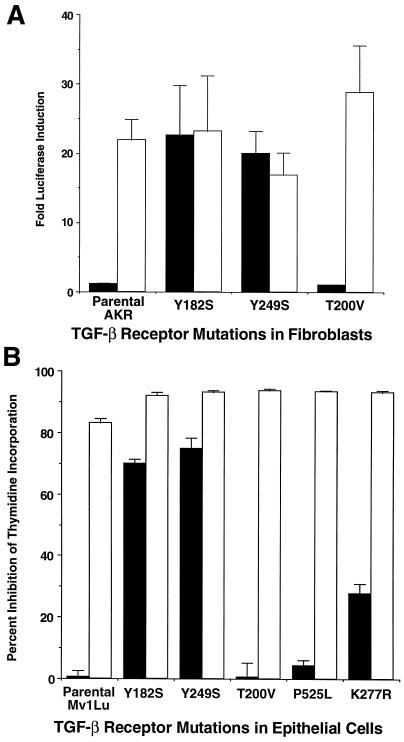Figure 1.
Chimeric receptor regulation of TGF-β signaling. Parental cell lines (AKR-2B and Mv1Lu) and clones expressing wild-type chimeric type II TGF-β receptors and the indicated chimeric type I receptor mutation were assayed for the ability to transduce a known TGF-β response when stimulated with either 10 ng/ml GM-CSF (▪), through activation of the mutant chimeric TGF-β receptor, or 10 ng/ml TGF-β2 (□), through the endogenous TGF-β receptors. (A) AKR-2B cells and clones expressing the indicated mutant type I receptor were transiently cotransfected with 3TP-Lux and β-galactosidase control plasmids and treated with GM-CSF or TGF-β2. Data represent the mean fold induction (±SE) of luciferase by TGF-β2 or GM-CSF from two experiments on clones Y182S-1, Y249S-7, and T200V-10 and -12. Fold induction is corrected for β-galactosidase expression and then calculated relative to unstimulated basal expression (5% FBS/DMEM) by the same clone during each experiment. (B) Inhibition of thymidine incorporation was determined in parental Mv1Lu cells and clones expressing mutant chimeric receptors following 20 h of treatment with GM-CSF or TGF-β. The results represent the mean (±SE) of triplicate experiments from parental Mv1Lu cells and three Y182S, T200V, Y249S, K277R, and P525L mutant receptor expressing clones as described in MATERIALS AND METHODS. Data are presented as percentage of inhibition of thymidine incorporation compared with untreated cycling cells of the same clone.

